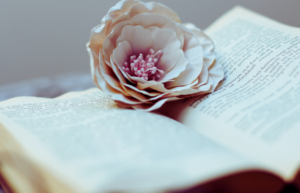What is the definition of a poem? According to Brookes Washington
Poetry is a form of storytelling. The key to writing is making the audience feel. Give them something to remember and hold onto.
A poem can also be thought of as a category or genre of literature.


Photo courtesy of @STOCKBYJEWELS
Dreams is an example of a poem written by Langston Hughes.
Dreams
Hold fast to dreams
For if dreams die
Life is a broken-winged bird
That cannot fly.
Hold fast to dreams
For when dreams go
Life is a barren field
Frozen with snow.
How to write a poem using these 10 straightforward steps
1. Before you delve into writing, take at least ten minutes to compile a random list of ideas that you can reference to determine your potential starting point. In order to keep your thoughts flowing freely, be sure to silence your inner critic.
This free verse writing exercise is simply to ensure that you will have a plethora of material to draw upon when you are ready to draft your poem.
2. Embrace your list and then begin to excavate a cache of words that can be used to set the tone for a poem. Subsequently, familiarize yourself with poetry. There are different genres of poems such as sonnets, free verse, and haiku. Should you try your hand at free verse, or the rhyme configuration of a sonnet? Would you feel more comfortable dabbling with the syllabic constraints of a haiku?
3. Examine different types of poetry then select the style that appeals to you. Have fun with passages that evoke thought-provoking responses. Attempt to find a poem or two that brings joy into your life.
My most recent blog posts entitled: 7 magnificent websites for encouraging poetry and 7 lovely bookish poems introduce online resources and short verses for assimilating poetry.
Photo courtesy of Ava Sol/Unsplash Photo courtesy of thought-catalog/Unsplash
4. Patiently revisit your favorite poems. Which elements of the poems captured your attention? Was the tone, or structure of the poems a deciding factor? Did the lines rhyme, captivate, or have fascinating concepts? Were the the authors’ literary works renowned?
5. Practice formulating your thoughts on paper.
6. Draw inspiration from music, art, beauty, humor, books, children’s authors, and nature.
7. If you are unable to discern your style, try to construct a series of phrases that rhyme. Rhymer.com is a free rhyming dictionary reference for acquiring words. Read the lyrics out loud. Thoughtfully organize your words then rearrange them until they sound melodious. Read them out loud again.

8. Edit the parts that seem out of place.
9. Once you are satisfied with your work name your poem. Publish the completed rhyme online. Share the literary verse with friends and family.
10. Frame your piece and hang the poem in a prominent place.
Featured Image courtesy of Annie Spratt/Unsplash





